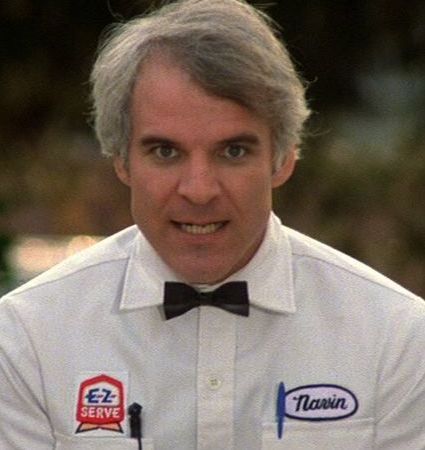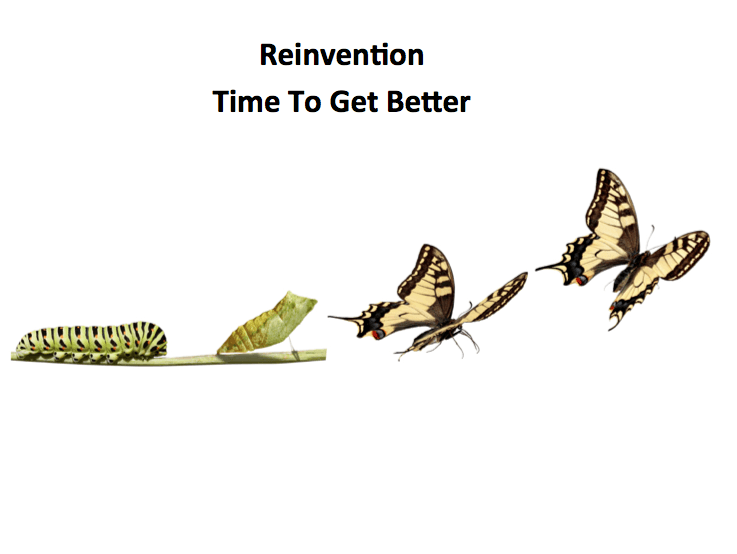Ragman: An Allegory of Death and Resurrection
As we prepare to celebrate Easter author Walter Wangerin, Jr. offers us a poignant allegory of Christ’s glorious work for us on the cross.
Ragman I saw a strange sight. I stumbled upon a story most strange, like nothing in my life, my street sense, my sly tongue had ever prepared me for. Hush child. Hush, now, and I will tell it to you. Even before the dawn on Friday morning I noticed a young man, handsome and strong, walking the alleys of our city. He was pulling an old cart filled with clothes both bright and new, and he was calling in a clear tenor voice: “Rags!” Ah, the air was foul and the first light filthy to be crossed by such sweet music. “Rags! New rags for old! I take your tired rags! Rags!”
“Now this is a wonder,” I thought to myself, for the man stood six feet four, and his arms were like tree limbs, hard and muscular, and his eyes flashed intelligence. Could he find no better than this, to be a ragman in the inner city? I followed him. My curiosity drove me. And I wasn’t disappointed. Soon the Ragman saw a woman sitting on her back porch. She was sobbing into a handkerchief, sighing, and shedding a thousand tears. Her knees and elbows made a sad X. Her shoulders shook. Her heart was breaking. The Ragman stopped his cart. Quietly, he walked to the woman, stepping round tin cans, dead toys, and pampers. “Give me your rag, “ he said so gently, “and I will give you another.” He slipped the handkerchief from her eyes. She looked up, and he laid across her palm a linen cloth so clean and new it shined. She blinked from the gift to the giver. Then as he began to pull the cart again, the Ragman did a strange thing: he put her stained handkerchief to his own face; and then he began to weep, to sob as grieviously as she had done, his shoulders shaking. Yet she was left without a tear.
“This is a wonder,” I breathed to myself, and I followed the sobbing Ragman like a child who cannot turn away from mystery. “Rags! Rags! New rags for old!” In a little while, when the sky showed grey behind the rooftops and I could see the shredded curtains hanging out black windows, the Ragman came upon a girl whose head was wrapped in a bandage, whose eyes were empty. Blood soaked her bandage. A single line of blood ran down her cheek. Now the tall Ragman looked upon this child with pity, and he drew a lovely yellow bonnet from his cart. “Give me your rag,” he said, tracing his own line on her cheek, “and I will give you mine.” The child could only gaze at him while he loosened her bandage, removed it, and tied it to his own head. The bonnet he set on hers. And I gasped at what I saw: for with the bandage went the wound! Against his brow it ran a darker, more substantial blood—his own! “Rags! Rags! I take old rags!” cried the sobbing, bleeding, strong, intelligent Ragman.
The sun hurt both the sky, now, and my eyes; the Ragman seemed more and more to hurry. “Are you going to work?” he asked a man who leaned against a telephone pole. The man shook his head. The Ragman pressed him: “Do you have a job?” “Are you crazy?” Sneered the other. He pulled away from the pole, revealing the right sleeve of his jacket—flat, the cuff stuffed in his pocket. He had no arm. “So,” said the Ragman, “Give me your jacket, and I’ll give you mine.” Such quiet authority in his voice! The one-armed man took off his jacket. So did the Ragman—and I trembled at what I saw: for the Ragman’s arm stayed in his sleeve and when the other put it on he had two good arms, thick as tree limbs; but the Ragman had only one. “Go to work,” he said.
After that he found a drunk, lying unconscious beneath an army blanket, an old man, hunched, wizened, and sick. He took that blanket and wrapped it round himself, but for the drunk he left new clothes. And now I had to run to keep up with the Ragman. Though he was weeping uncontrollably, and bleeding freely at the forehead, pulling his cart with one arm, stumbling for drunkenness, falling again and again, exhausted, old, old, and sick, yet he went with terrible speed. On spider’s legs he skittered through the alleys of the city, this mile and the next, until he came to its limits, and then he rushed beyond.
I wept to see the change in this man. I hurt to see his sorrow. And yet I needed to see where he was going in such a haste, perhaps to know what drove him so. The little old Ragman—he came to a landfill. He came to the garbage pits. And then I wanted to help in what he did, but I hung back, hiding. He climbed a hill. With tormented labor he cleared a little space on that hill. Then he sighed. He lay down. He pillowed his head on a handkerchief and a jacket. He covered his bones with an army blanket. And he died.
Oh, how I cried to witness that death! I slumped in a junked car and wailed and mourned as one who has no hope—because I had to come to love the Ragman. Every other face had faded in the wonder of this man, and I cherished him; but he died. I sobbed myself to sleep. I did not know—how could I know?—that I slept through Friday night and Saturday and its night, too.
But then, on Sunday morning, I was wakened by a violence. Light—pure, hard, demanding light—slammed against my sour face, and I blinked, and I looked, and I saw the last and the first wonder of all. There was the Ragman, folding the blanket most carefully, a scar on his forehead, but alive! And , besides that, healthy! There was no sign of sorrow nor of age, and all the rags that he had gathered shined for cleanliness. Well, then I lowered my head and, trembling for all that I had seen, I myself walked up to the Ragman. I told him my name with shame, for I was a sorry figure next to him. Then I took off all my clothes in that place, and I said to him with dear yearning in my voice: “Dress me.” He dressed me. My Lord, he put new rags on me, and I am a wonder beside him. The Ragman, The Ragman, The Christ! From: “The Ragman and Other Cries of Faith” By Walter Wangerin, Jr.
Download this pdf and share it with your family Ragman
To God Be the Glory!!!
















